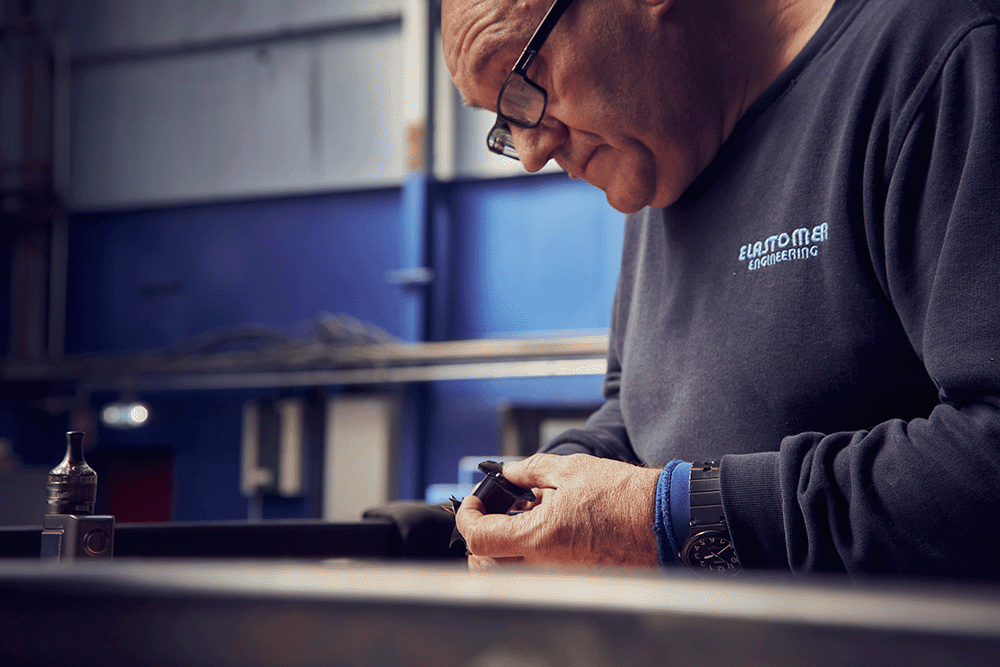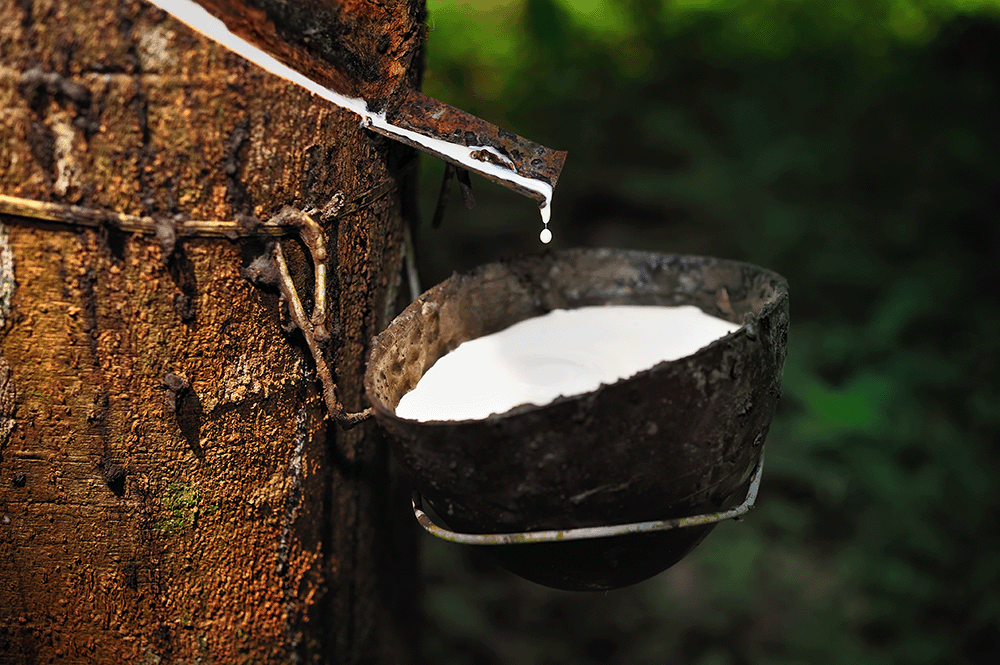
What Is the Best Adhesive for Rubber to Metal?
What Is the Best Adhesive for Rubber to Metal?
Rubber to metal components play an important role in a wide range of applications across the industrial, automotive and aerospace sectors. These parts rely on a dependable bond between the rubber and substrate, which can be achieved using several bonding methods. In this article, DLR Elastomer Engineering explores the best rubber to metal adhesives.
The best rubber to metal adhesive depends both on the type of rubber and metal in question. In general, most rubbers can be bonded to most metals. For our purposes, there are two types of adhesives: contact and chemical. Contact adhesives, as the name implies, are affected by the application of pressure. The resulting bond relies on a degree of affinity between the substrates and the adhesive, as re-positioning is near impossible.
Chemical adhesives, on the other hand, are reactive materials that rely on a chemical reaction to convert them from a liquid or thermoplastic into a solid. This type of adhesive generally provides a high degree of strength, as well as flexible to rigid bond lines that are resistant to humidity, temperature and numerous chemicals. Various one and two component adhesive compositions can be used to bond rubber to metals.

How to Select a Rubber to Metal Adhesive
The choice of adhesive, or more accurately bonding agent, depends on the service conditions of the part. The following are just a few application considerations to bear in mind when selecting an appropriate adhesive:
- Temperature – Maximum and minimum temperatures the part will be exposed to.
- Media – What chemicals, gases, liquids and solids will the part come into contact with?
- Static or dynamic application – What pressures and friction will the rubber endure?
- Indoor and/or outdoor use – What level of exposure will there be to UV, ozone, weather?
- Subsequent processing –Will there need to be sterilisation by chemicals, radiation, steam, gas?
- Bond strength – What degree of bond strength will be required for the part to perform optimally?
All of these factors can play a vital role in the selection of the correct materials for the part. Having selected the materials, rubber, metal and rubber to metal adhesive, the end product can then be manufactured and bonded. The bond is typically tested and deemed as good when the bond strength is greater than the strength of the rubber. This will result in the rubber breaking rather than the bond.
Rubber to Metal Bonding at DLR Elastomer Engineering
At DLR Elastomer Engineering we are proud to call ourselves experts in the design, development and manufacture of specialised polymer products. We have a vast amount of experience in producing reliable rubber sheeting, fabrications and custom rubber mouldings. We combine materials science and manufacturing expertise from many different fields to produce bespoke rubber products, including rubber to metal bonded components.
The bonding of rubber to other substrates is a crucial aspect of our novel solutions. We have a wealth of experience when it comes to the preparation of metal for rubber-to-metal bonding. For example, we work closely with our automotive industry customers to bond engine mounts and bushes, with the aim of stopping two metal surfaces from rubbing together and ensuring optimal vibration isolation.
Looking for more detailed information on the different types of rubbers and polymers we work with? Then check out our material guides where you can find FAQ’s and more guides like this one detailing all you need to know. If you are looking for rubber or polymer products get in touch with DLR Elastomer today via our contact page or via LinkedIn and we can chat over your requirements.

Any questions? Get in touch
Since 1895 DLR has been combining expansive knowledge of materials, their properties, and processing techniques to develop bespoke mouldings and fabrications for many industry sectors. Our core services include moulding rubber, rubber sheeting, Petroseals, and cast polyurethane products. If you have any questions about our products, our process or the materials we use get in touch today!


